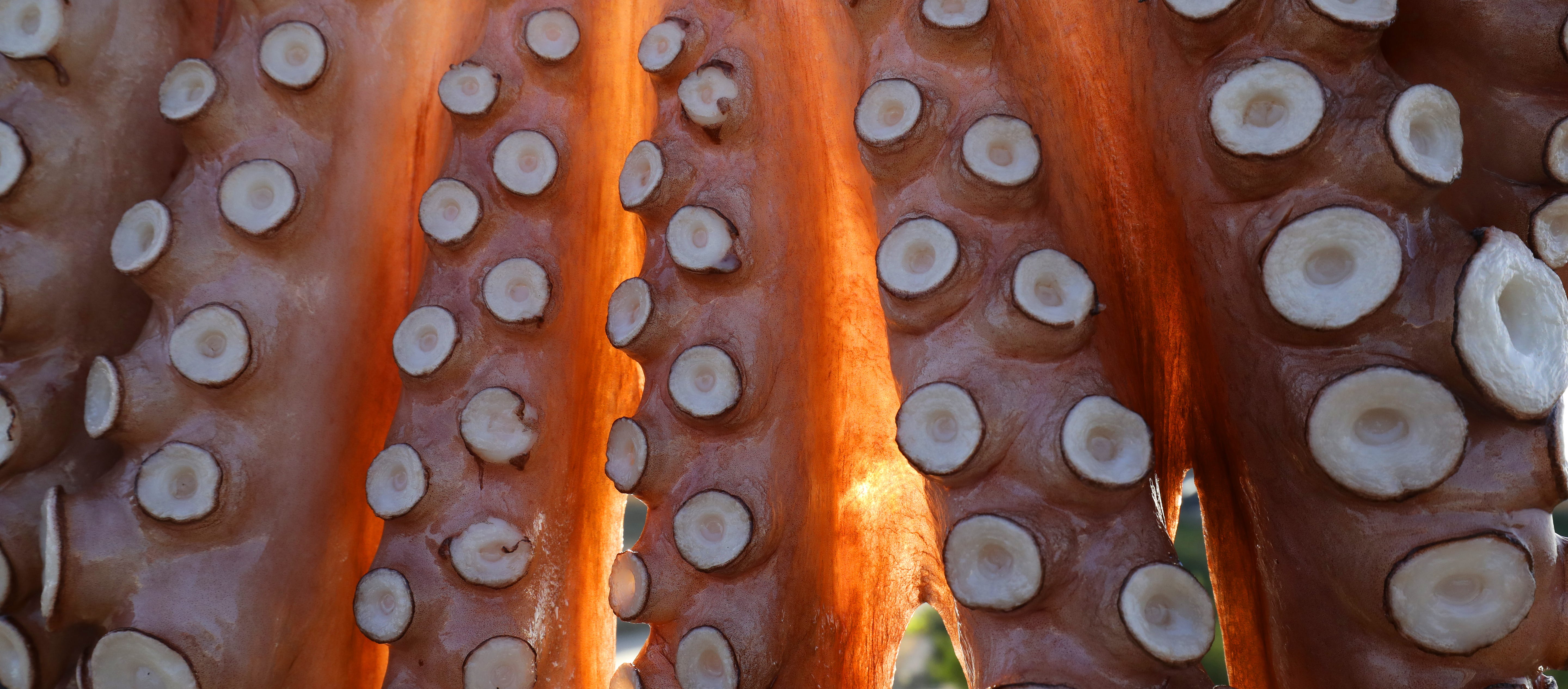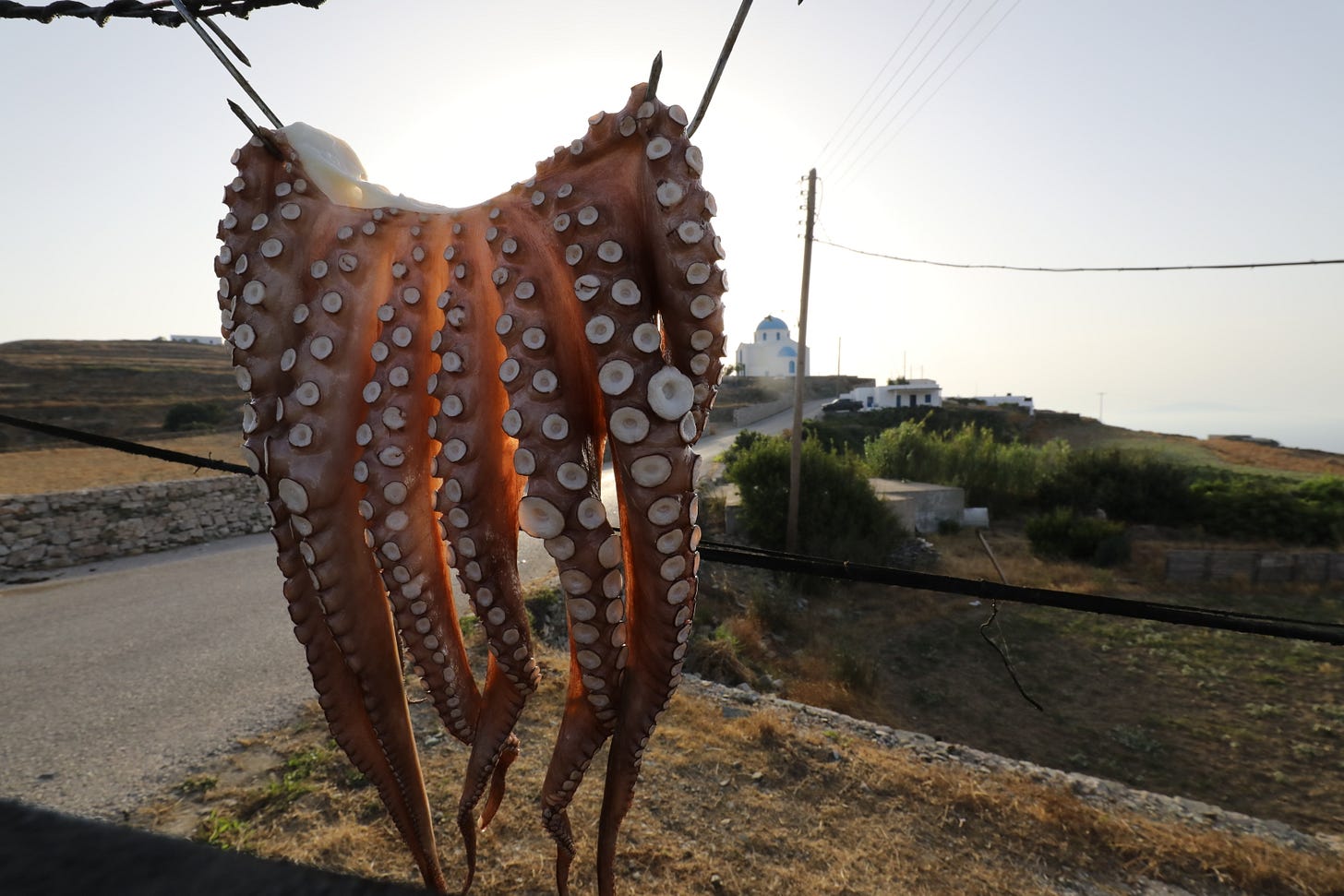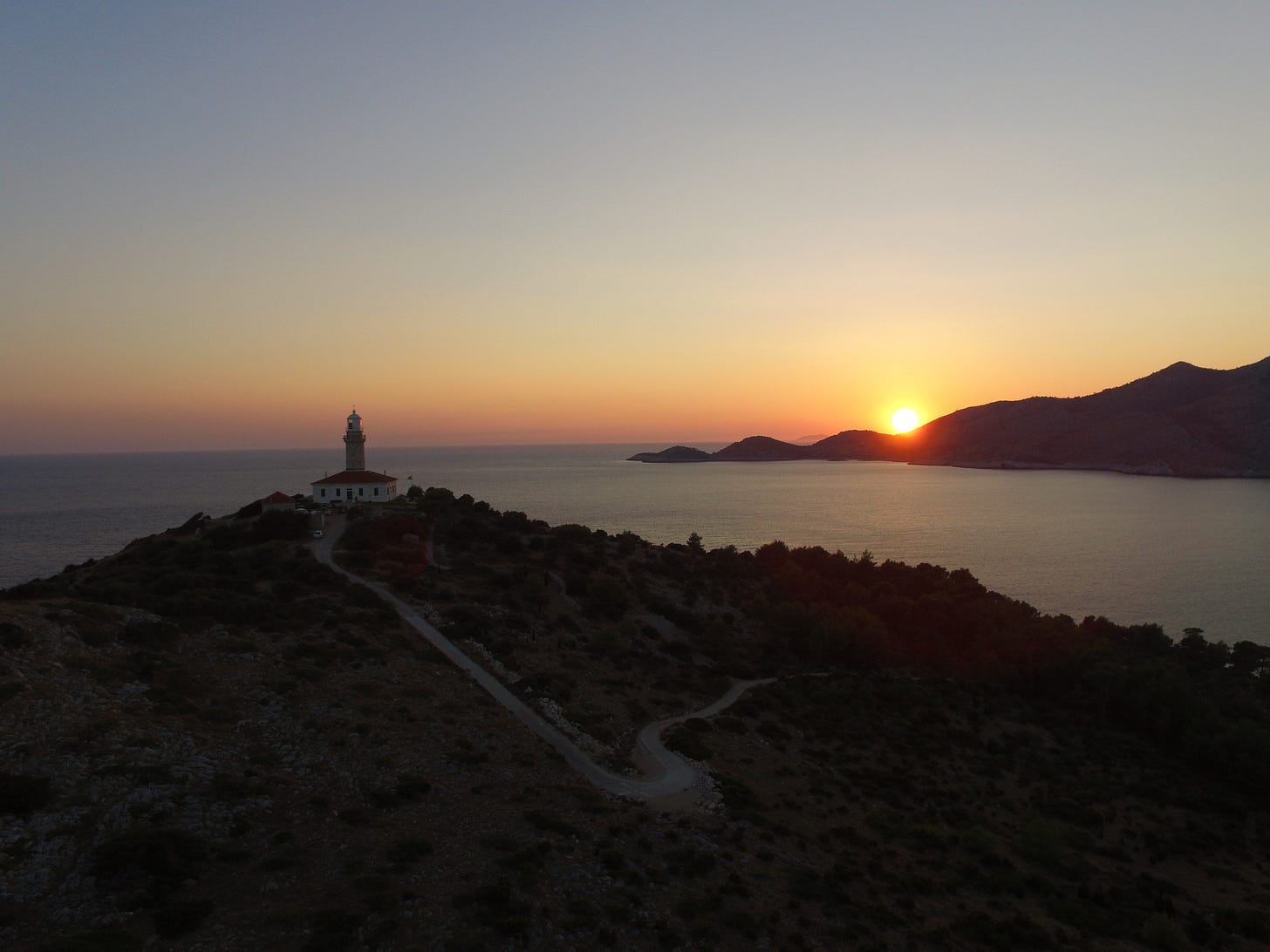When the Octopus Dreams
The first time I saw octopus was in Spain. It had been chopped into small pieces and was being served as a breakfast snack with a glass of home-made vermouth. When asked what it tasted like, I struggled to find an answer. It didn't actually taste of anything, not when you took away the salt, vinegar, olive oil and paprika. Nor was the texture particularly pleasant, I thought it was like eating an old bicycle tyre that had been expertly marinaded. Nevertheless the whole Spanish obsession for seafood had an influence. Despite all the evidence of my senses, I accepted it as a delicacy.
Jump forward a few years and I am diving on a Pacific reef when I see a large octopus making its getaway. There is something wholly improbable about an octopus going like the clappers along the seabed. It's like watching the Pope do the 100 metre hurdles: bits flapping and flying in all directions and yet progress being made. This octopus, I would say, was going a lot faster than a pontiff over the jumps. (I did research a little on this point and can find no evidence for a pope ever doing the hurdles although Pius X is said to have enjoyed boccie, the Italian version of lawn bowls).
I followed the octopus and saw it dive into a hole in the wall of the reef. Pushing my face up close to the entrance, I looked inside. There was the creature, now a dark purple that made it almost invisible, and as I watched, it simply disappeared.
At first I could not believe it. I pushed away from the tiny cave and caught a fleeting glimpse, just a movement, of the octopus as it fled to another, deeper, refuge. This animal, perhaps a metre long and with a body almost as large as a football, had escaped through a hole smaller than the type you find on golf courses.
That was the first clue that there was more to this animal than met the eye. Our next encounter was in the Mediterranean, a smaller octopus that wrapped around my hand, gently examining the spaces between my fingers and touching the nails. It had a curiosity that was slightly unsettling, as though there was an intelligent, possibly conscious, being inside that alien body.
It was Lastovo, however, that really changed my attitude.
Of all the Croatian islands, Lastovo is the most remote. Tourism is minimal. The crowds who flock to Rab and Pag generally don't want to take two long ferry journeys. When I arrived at night, there was a brief flurry of activity around the jetty, then within minutes everyone had gone. I looked at my phone and saw I had no signal. My accommodation was in a lighthouse at the end of the island, several miles away. I drove across vast hillsides and mountain, then down to a moonlit sea. On the end of a promontory was the Struga lighthouse where I had booked a room. The key was in the door.
Next morning I met Mladin, the lighthouse keeper. He was wearing baggy swimming shorts and carrying a face mask, fins and a spear gun. "Very good octopus here," he told me. Lastovo, in fact, is famous for its seafood. In the 19th century, Mladin told me, a giant lobster was once sent from here to be eaten by the Emperor Franz Joseph.
I asked if I could go hunting with him - Mladin, that is, not the Emperor Franz Joseph.
Mladin, to be clear, was a short man with a generous pot belly. In the water, however, he was transformed. His swimming style was an improbably upright position powered by a bicycle kick. He went like the clappers, but made little disturbance. Within a minute he had chased up various fish and a strange bat-like creature, a nautical Nosferatu, that slunk away with a shimmy of its cape. It was, I found out later, a type of sea slug. There were, however, no octopi.
Our second foray had more luck. We drove around the island to a secluded bay and set off. I was swimming right behind Mladin when he caught the first octopus, but he was so quick that I barely noticed it happen. There was a movement behind a rock, his hand shot out and I caught a momentary glimpse of a creature being roughly shoved into a net bag. It happened twice more.
Back on the beach I still wasn't sure. "Did you catch anything?"
Mladin laughed gruffly and taking a few steps away from the sea, tipped the sack's contents out. Three octopuses, each about the size of my hand, landed in stunned silence on the shingle. Then they screamed.
I jumped back. The octopuses flung themselves seawards, writhing maniacally. And all the time they let out desperate mewls and squeaks like kittens about to be drowned. Mladin chuckled. "Haha! Very noisy today." He grabbed one in his hairy fist and shoved it in the bag, the second too. The third had made it to the water's edge when he caught it.
The bag was flung in the car boot. We drove back to the lighthouse. 'They are babies,' I was thinking, 'Baby octopuses.'
Mladin offered to cook one for me, in the traditional style, but I declined.
A couple of years later there came a film, My Octopus Teacher. A slightly contrived but compelling story of a diver's relationship with a single octopus that he befriends. Then came books, notably Peter Godfrey-Smith's Other Minds, and scientific studies with a deluge of detail on the powers of octopus intelligence. Finally this week a paper in bioRxiv revealed that researchers believe octopuses experience something like dreaming. Eric Ramos, working at Rockefeller University, noticed that Costello, a Brazilian reef octopus who had lost two tentacles in the wild, would change colour while apparently asleep, then shoot jets of ink while contorting its remaining tentacles. Ramos calls on other researchers to investigate the possibility that octopuses dream.
All this makes me wonder. What do they dream about?





Do octopi dream of nautical sheep?
If we look at a human’s most common dreams, there doesn’t seem to be any proper mapping (Falling? Being in school? Losing teeth? flying?)
Reminds me a philosophy paper: What is it like to be a bat”.
I love that you always have accompanying images. Although the picture an octopus scream is terrifying and frankly vivid enough in my own imagination.